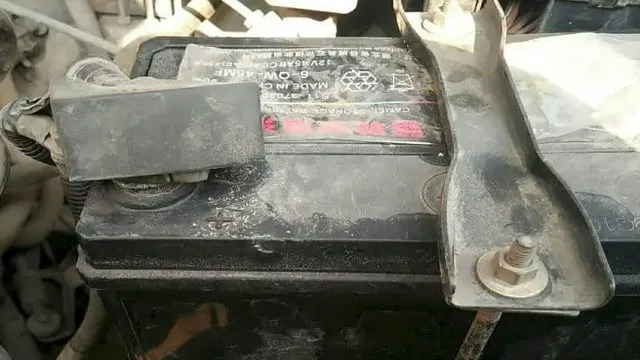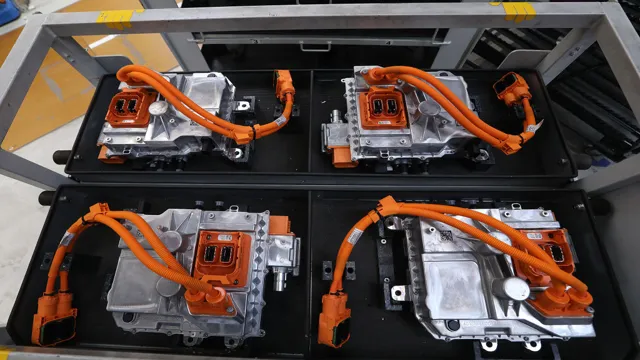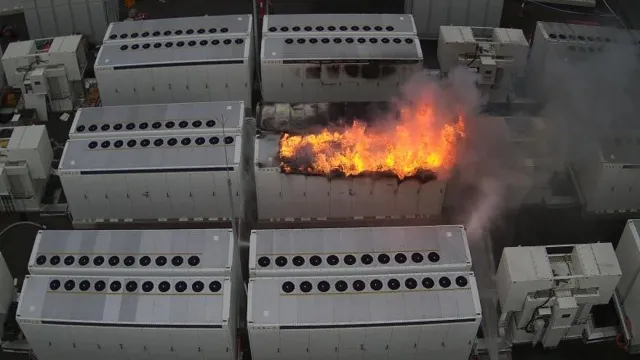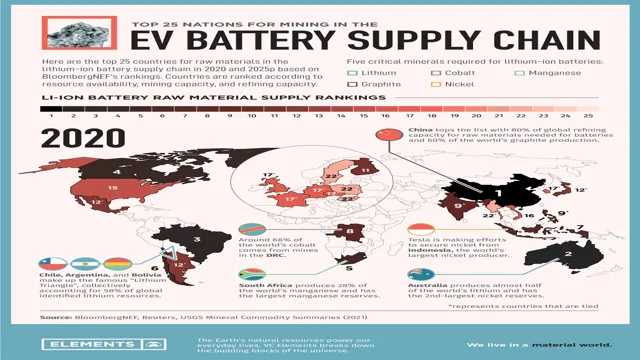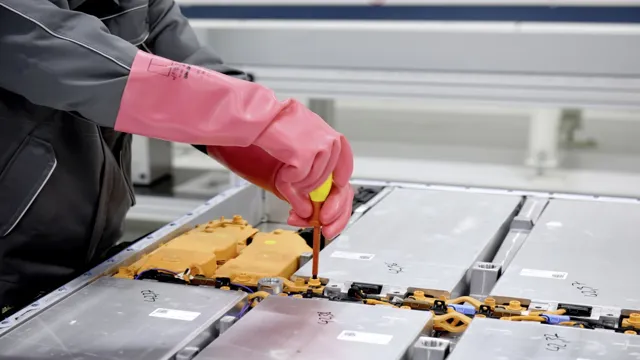Unveiling the Real Reason behind Electrical Dimming in Cars: Car Battery Corrosion Causes Exposed
Is your car battery not performing like it used to? Do you notice that your headlights are dimming, or your other electrical components are not as powerful as they once were? If so, car battery corrosion could be the culprit. This pesky problem can lead to a myriad of issues that can leave you stranded on the side of the road or with a hefty repair bill. Today, we’ll dive into the world of car battery corrosion and how it affects your vehicle.
We’ll discuss what causes it, how to prevent it, and what to do if you suspect your battery is suffering from corrosion. So buckle up, and let’s take a deep dive into this important topic.
What is Battery Corrosion?
Battery corrosion occurs when the acid from the car battery leaks out and comes in contact with other materials, causing rust and damage. Various factors can contribute to car battery corrosion, including age and use, exposure to harsh weather conditions and contaminants, and improper maintenance or installation. Notably, the corrosion can cause electrical issues in the car, leading to dimming headlights, weak starting, and even a complete breakdown of the electrical system.
Therefore, it is essential to address battery corrosion as soon as possible, especially if you notice any signs of damage. You can prevent battery corrosion by regularly checking and cleaning the terminals, using terminal protectors, and replacing an old or worn-out battery. Overall, taking care of your car battery is crucial to ensure optimal performance and avoid costly repairs down the line.
Chemical Reactions in Batteries
Have you ever noticed a white powdery substance forming around the terminals of your battery? Well, that’s battery corrosion, which occurs due to chemical reactions in batteries. This process is also known as sulfation, wherein sulfate crystals form on the surface of the battery. The root cause of battery corrosion is the chemical reaction between the sulfuric acid electrolyte and the lead battery terminals.
This reaction slowly causes the metal terminals to erode, leaving behind the white powdery substance. Battery corrosion not only reduces the performance of your battery but can also lead to permanent damage. To prevent or mitigate battery corrosion, it’s essential to maintain your battery properly, avoid overcharging, and keep it clean and dry.

Effects on Battery Performance
Battery corrosion is a chemical breakdown that affects the performance of batteries, particularly in devices that are not frequently used or stored for a long time. Corrosion can be caused by a variety of factors, such as exposure to extreme temperatures, humidity, or even the type of battery used. When corrosion occurs, it can cause the battery to leak, creating a chemical reaction that can damage the device it powers.
Additionally, corrosion can also reduce the battery’s capacity and lifespan, leading to frequent replacements and increased costs. To prevent battery corrosion, it is recommended to store batteries in a cool, dry place, avoid mixing different types of batteries, and remove batteries from devices that are not used for extended periods of time. By taking these simple precautions, you can ensure that your batteries remain in top condition and avoid the negative effects of corrosion on their performance.
How Does Battery Corrosion Cause Electrical Dimming?
Car battery corrosion is a common occurrence that can cause electrical dimming. When a battery becomes corroded, it creates resistance in the electrical system, which can lead to the flow of power being disrupted. This can cause a range of electrical issues, including dimming lights and slow cranking.
The corrosion can also cause damage to electrical components, such as the alternator and spark plugs, which can lead to further problems down the line. To prevent battery corrosion and the resulting issues, it’s important to routinely check the battery and keep it clean and dry. It’s also important to use a high-quality battery and to have it checked by a professional if any issues arise.
By taking these precautions, you can help ensure that your car remains dependable and runs smoothly.
Electrical Components Affected by Corrosion
Battery corrosion can cause various electrical components to dim. When batteries corrode, the acid can leak and damage nearby electrical connections, which can ultimately lead to poor illumination and weaker electrical signals. In some cases, the build-up of corrosion can create a physical barrier, making it impossible for electricity to pass through.
Consequently, the components relying on that electricity will no longer function correctly. The longer the battery corrodes, the more severe the damage can become, making it vital to address the issue as soon as possible. This is where regular battery maintenance comes in handy.
By keeping an eye on your battery and conducting routine checks, you can prevent excessive corrosion and prolong the lifespan of your electrical system.
Circuit Interruptions and Dimming Lights
When it comes to circuit interruptions and dimming lights, battery corrosion is often the culprit. Battery corrosion occurs when the chemicals inside the battery interact with the metal terminals, resulting in a build-up of rust and debris. This build-up can interfere with the flow of electricity, leading to electrical interruptions and dimming lights.
In severe cases, battery corrosion can even damage the circuitry of your electrical system, resulting in expensive repairs. That is why it’s important to regularly inspect and maintain your batteries to prevent corrosion and ensure optimal performance. One way to do this is to clean the terminals with a mixture of baking soda and water, which can help neutralize any acids and prevent further corrosion.
By taking these steps, you can ensure that your electrical system remains reliable and efficient, and avoid the frustration of circuit interruptions and dimming lights.
Alternator and Charging System Effects
battery corrosion, electrical dimming Have you ever experienced your car’s lights dimming while you’re driving? This can be caused by battery corrosion as it disrupts the flow of electricity to the charging system. Battery corrosion is the buildup of a white, powdery substance around the terminals of your car’s battery, causing the battery to lose its ability to hold a charge and affecting the charging system’s output. As a result, the alternator has to work harder to compensate for the reduced voltage, leading to electrical dimming.
Regularly cleaning your battery terminals with a mixture of baking soda and water can help prevent battery corrosion and lengthen the life of your battery and charging system. If you notice any signs of battery corrosion or electrical dimming, don’t hesitate to have it checked out by a professional mechanic.
Preventing Car Battery Corrosion
Car battery corrosion is one of the most common causes of electrical dimming in vehicles. It occurs when the sulfuric acid in the battery reacts with the metal terminals, creating a layer of buildup. This buildup can cause poor electrical conductivity, resulting in dimming lights and slow cranking noises.
The good news is that preventing car battery corrosion is easy. One way to do this is by regularly cleaning the battery terminals and cables with a mixture of baking soda and water. You can also apply a layer of petroleum jelly on the terminals to protect them from future corrosion.
Another option is to install corrosion-resistant coatings or terminal protectors. By doing these simple steps, you can ensure that your car battery stays healthy, and you avoid any unwanted electrical issues down the road.
Regular Battery Maintenance
Preventing Car Battery Corrosion Regular battery maintenance is crucial to ensure optimal performance and longevity of your car battery. One important aspect of maintenance is preventing battery corrosion. Battery corrosion occurs when the hydrogen gas released during the charging process reacts with the lead in the battery terminals and creates a white, powdery substance.
Over time, this corrosion can weaken the connection between the battery and the cables, ultimately leading to a dead battery. To prevent battery corrosion, it’s essential to clean the terminals regularly with a solution of baking soda and water. Apply the solution with a wire brush and then rinse the terminals with plain water before drying them off.
Additionally, coating the terminals with petroleum jelly can create a barrier that helps to prevent corrosion. By taking these simple steps, you can extend the life of your car battery and avoid the inconvenience of a dead battery.
Using Corrosion-Preventing Products
Car battery corrosion is a common issue that can lead to multiple problems like decreased battery lifespan and reduced performance. However, there are various products available in the market that can help prevent this issue. One such product is a battery terminal spray.
This corrosion-resistant spray creates a protective layer over the battery terminals, preventing corrosion from building up. You can also include anti-corrosion washers in your battery setup. These washers are made of materials like felt or neoprene that resist corrosion and can provide long-lasting protection to your battery.
By using such products, you can potentially extend the life of your car battery and ensure it operates smoothly without any issues.
Conclusion
In the world of automobiles, a car battery is the heart and soul that keeps the vehicle up and running. However, when corrosion strikes, it can cause a host of problems, including electrical dimming. But fear not, this issue can be prevented by keeping the battery clean and maintained.
Remember, a little TLC goes a long way in ensuring your car stays bright and shiny, both inside and out!”
FAQs
What are the common causes of car battery corrosion?
The primary causes of car battery corrosion include exposure to moisture, debris buildup, and hydrogen gas emissions from the battery itself.
How can I prevent car battery corrosion?
To prevent car battery corrosion, you can regularly inspect the battery and clean any buildup with a mixture of baking soda and water. You can also apply a protective spray or coating to the battery terminals.
Can car battery corrosion cause electrical dimming?
Yes, car battery corrosion can cause electrical dimming as it disrupts the flow of electricity to the car’s electrical system.
What are the signs of car battery corrosion?
Signs of car battery corrosion include a visible buildup of white or green residue on the battery terminals, difficulty starting the car, and dimming headlights or interior lights.
